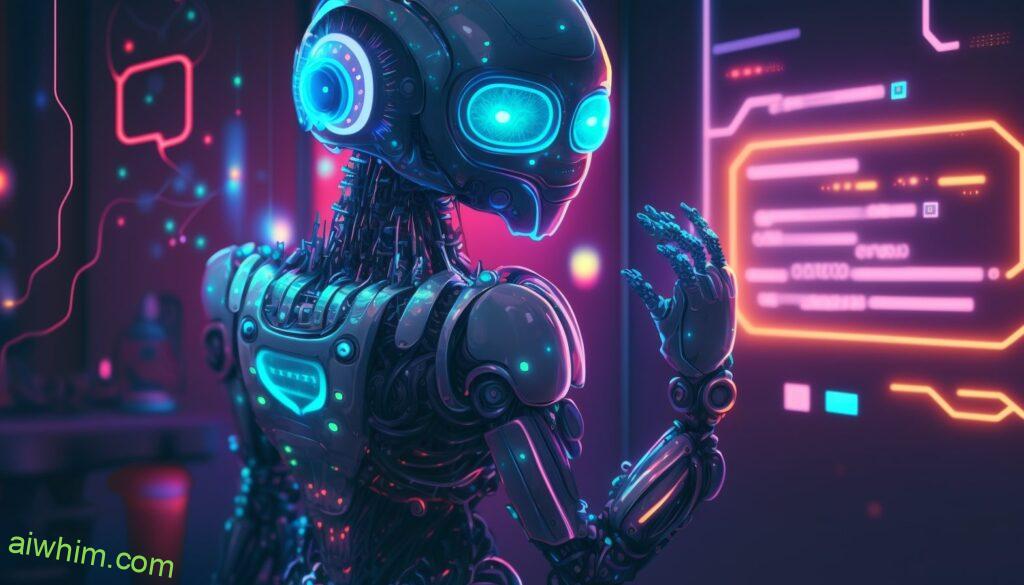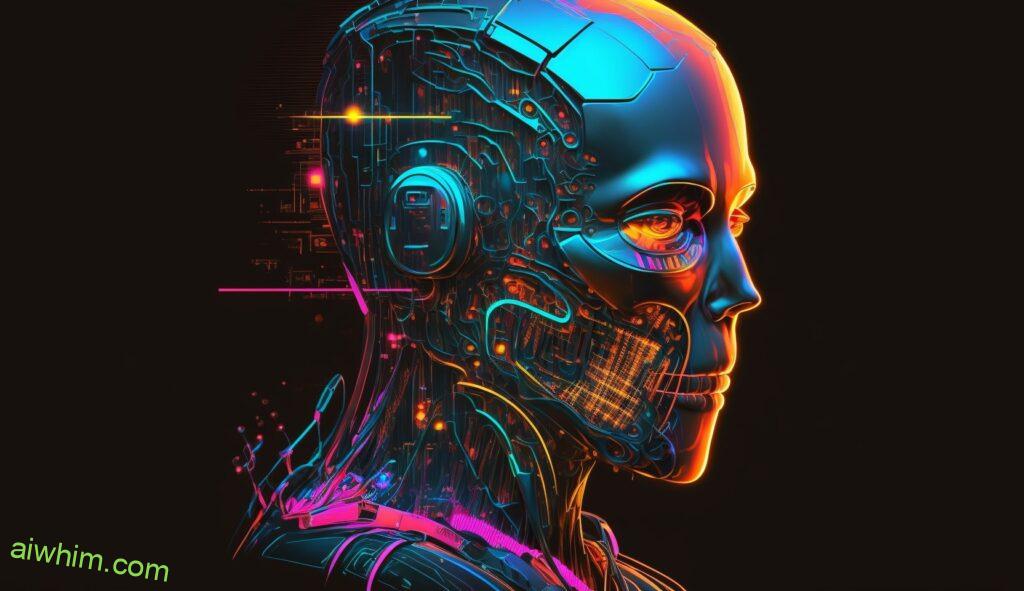Mathematics is a field that’s integral to the development of Artificial Intelligence (AI). But as AI becomes more advanced, it raises an important question: will your career and job in mathematics be replaced by AI?
The truth is that no one really knows for sure how AI will really impact mathematics careers in the future. It could be argued that AI could never completely take over from humans when it comes to complex tasks such as mathematical research and problem solving – but with each new advance made in machine learning technology, mathematicians should remain aware of the potential threat to math jobs posed by robots.
In this article, we’ll examine both sides of the debate so that you can make an informed decision on whether or not your career in maths is at risk from AI.
By the way, click this link to read our study about which 100 professions are in strongest jeopardy of being replaced by AI. Are mathematicians among them?

Definition Of Artificial Intelligence
A wise man once said, “Necessity is the mother of invention”. Artificial Intelligence (AI) has proven to be a necessity in our modern world and it has led to numerous inventions that have changed how we live and work. AI refers to computer systems designed to perform tasks traditionally requiring human intelligence such as visual perception, speech recognition, decision-making, or translation between languages. It can range from simple applications like facial recognition software used by law enforcement officers to complex deep learning algorithms being developed for self-driving cars.
The implications of AI are far reaching and its uses can vary greatly depending on the application. A wide variety of industries ranging from healthcare to finance are already utilizing this technology with great success. As more businesses begin to understand the advantages that AI offers, they will continue investing heavily in developing new ways of incorporating it into their operations. In turn, this could lead to major shifts in the job market as certain roles become obsolete due to automation or require workers with an increased understanding of AI principles.

In addition, read this article to find out how the jobs of journalists are affected by chatbots and the AI revolution. (Click to get to the post.)
Overview Of Mathematics Careers
As technology continues to advance, it is natural to wonder what impact artificial intelligence (AI) might have on careers in mathematics. This section will provide an overview of the various types of mathematical jobs available and examine whether AI could potentially threaten those positions.
Mathematicians can pursue a variety of different career paths depending upon their interests and skillset. Below are several examples:
- Research Mathematician: Develops new theories or applies existing ones to solve problems
- Applied Mathematician: Uses math principles to create models for analyzing complex data sets
- Cryptographer/Data Security Analyst: Analyzes codes and algorithms used to protect computer systems from cyber attacks
- Education/Academia Professional: Teaches math at universities or other educational institutions
- Financial Analyst/Economist: Applies mathematical methods to predict financial markets or analyze economic trends
- Actuary: Examines risk factors associated with insurance policies, investments, and pensions
It’s important to note that while AI may be able to perform certain tasks more efficiently than humans, there is still a need for human mathematicians due to their ability to think creatively and exercise judgment when solving problems. As such, this type of work will likely remain safe from automation for many years into the future.

You may also want to read this article which investigates whether the jobs of university Professors are at risk from AI. (Click the link to read.)
Impact Of AI On Traditional Mathematics Jobs
Recent studies have found that automation and AI are projected to displace around 20 million jobs by the year 2030. This includes many traditional mathematics roles, such as statisticians and data scientists. By using machine learning algorithms and automated processes, companies can reduce the costs associated with employing mathematicians.
Despite this, it is important to note that AI has also created new opportunities for mathematicians in fields like computer vision. For example, math experts are now being hired to develop advanced algorithms used in facial recognition software. Furthermore, while more complex tasks may be handled by machines, there will always be a need for human intuition when developing mathematical models or interpreting results. Ultimately, AI is not likely to eliminate all positions within the field of mathematics – rather it will create a shift towards different types of roles which require an understanding of both technology and traditional methods.

Also, are the careers of Statisticians threatened by artificial intelligence? Click to find out!
Automation And Robotics In Mathematics
The advent of automation and robotics in mathematics has raised the question of whether AI will take the jobs in mathematics. The answer is both yes and no. On one hand, there are certain tasks that can be automated by robots or computers which would otherwise require a human mathematician to perform. For example:
- Solving complex equations
- Performing calculations faster than humans
- Identifying patterns in data sets
On the other hand, AI cannot replace the creativity and intuition involved with problem-solving that only human mathematicians possess. Furthermore, some areas such as applied mathematics, abstract algebra and number theory still rely heavily on creative approaches for their solutions – something that robots or computers simply cannot provide yet. So while AI may make some aspects of math easier, it won’t completely eliminate the need for humans to do mathematical work anytime soon. In fact, it could even create new opportunities for collaboration between mathematicians and engineers to develop more sophisticated algorithms and systems to solve difficult problems.
By the way, here is an article about AI and the future of Electrical Engineering jobs that may also be of interest.
Changes To Education And Training Requirements
On the one hand, AI has the potential to automate many aspects of mathematics that require tedious and time-consuming calculations. On the other hand, it can also enable mathematicians to analyze data faster than ever before. As a result, education and training requirements for mathematicians may need to evolve in order to keep up with these changes.
Mathematicians will likely have to become more knowledgeable about computer programming languages and machine learning methods as well as develop skills such as debugging algorithms and coding functions. Additionally, they must be able to use their technical knowledge and apply it effectively when developing mathematical models or solving complex problems.
It is clear that AI won’t replace human mathematicians anytime soon; however, its impact on the profession is undeniable. The future of mathematics lies in mastering both traditional approaches and new technologies to stay ahead of the curve, while continuing to solve real-world problems with innovative solutions.

Moreover, click to read the linked article if you are curious about how AI will affect Science careers.
Opportunities For Mathematics Specialists
No, AI won’t take your job in mathematics. In fact, the field is growing and there are plenty of opportunities for mathematicians to leverage their skills and knowledge in exciting new ways.
Here’s a quick overview of some great opportunities you can explore as a mathematician:
- Data Analysis: As companies become increasingly data-driven, they need people with strong mathematical abilities to help them make sense of numbers and patterns. From interpreting customer behavior to forecasting trends, data analysis offers many unique challenges that require specialized expertise.
- Software Development: With the rise of technology, software development has become one of the most sought after areas for mathematicians. By applying advanced problem-solving techniques, mathematicians can develop sophisticated algorithms for apps or websites which increase efficiency and accuracy.
- Research & Education: Research remains at the core of mathematics, but now more than ever before there are numerous opportunities to pursue research projects outside academia. Whether it’s working on a start-up project or leading an industry team on innovative ideas, research remains an important part of any mathematician’s career path. Additionally, teaching positions also continue to be available from primary school through college level institutions where students learn about mathematical concepts and principles first hand from experienced professionals
- Finance & Business Analytics: Finance involves complex calculations requiring extensive understanding of probability theory and statistical methods. For business analytics roles, employers look for candidates who have experience with predictive modeling tools such as linear regression or decision trees. This provides another area for mathematicians to apply their skills in novel ways while pursuing lucrative careers in finance or business analytics fields.
- Consulting Services: Finally, consulting services provide yet another avenue for mathematicians looking to break into the professional world outside academia. Companies often hire consultants with specializations in mathematics when dealing with high stakes decisions related to investments or other strategic planning objectives. Consulting requires excellent communication skills combined with comprehensive knowledge in different areas making it an ideal choice for those interested in using their math expertise to help businesses succeed.
Mathematics will remain relevant no matter how much artificial intelligence advances; this means that by staying up-to-date on advancements within the field, you can find fulfilling work both inside and outside traditional academic settings – so don’t let fears over AI taking away your job deter you!

Role Of Computer Scientists In Mathematics Applications
In the previous section, we discussed the plethora of opportunities available to mathematics specialists. However, with the advent of artificial intelligence and machine learning, it is pertinent to ask: will AI spoil careers in mathematics? In a word — no. While there have been predictions that Artificial Intelligence (AI) could take certain jobs away from humans, it actually presents an opportunity for mathematicians and computer scientists alike.
Computer Scientists can leverage their knowledge in mathematics applications to create algorithms which are used by machines to make decisions faster than any human ever could. These algorithms need not only be theoretically sound; they must also be efficient enough to solve real-world problems quickly and effectively. Moreover, Computer Scientists work closely with mathematicians throughout this process; building models together so as to ensure accuracy and precision without sacrificing speed or scalability. Thus, far from replacing math professionals, AI actually creates more job opportunities for those who combine computing skills with mathematical acumen.
Conceiving innovative ideas about how best to use modern technologies such as AI is both stimulating and rewarding; providing career advancement possibilities for those seeking new challenges in these fields. By working together on projects that require expertise from both sides – Mathematics and Computing – each profession benefits greatly from the other’s unique perspective and specialized skill set. In short, while advances in technology may change some aspects the profession, one thing remains clear: Mathematicians will most certainly continue to play a vital role in the development of Artificial Intelligence going forward!

How Mathematical Thinking Can Help With AI Development
No, a career in mathematics should not be spoiled by AI. In fact, mathematical thinking can be beneficial when it comes to advancing AI development. Mathematical abilities are important for understanding the complexities of artificial intelligence and being part of its growth. This includes:
- Analyzing data:
- Identifying relationships between variables
- Interpreting results from machine learning algorithms
- Using probability theory to determine outcomes
- Developing models:
- Creating predictive models based on observed data
- Optimizing models with optimization techniques like linear programming or gradient descent
- Determining best parameters for model performance
- Solving problems:
- Formulating problem statements and objectives that align with business needs
- Utilizing creative problem-solving methods such as game theory or decision trees
- Applying heuristics to explore solutions without necessarily having all the required information.
Mathematics is an integral part of computer science, which forms the basis of AI development. By applying their knowledge and expertise in this field, mathematicians have the potential to make great contributions towards building smarter machines that can become powerful tools in our society.

Benefits Of AI For Mathematics Professionals
AI offers immense potential for mathematicians in terms of automation, efficiency, and accuracy. It can streamline tedious tasks while freeing up time to focus on more complex problem solving and research. AI eliminates the need for manual calculations that take hours or days, allowing mathematicians to quickly assess data sets and gain valuable insights without sacrificing precision. Furthermore, AI-driven analytics allow professionals to uncover patterns and trends which would otherwise remain hidden – an invaluable tool in a field where understanding those relationships is essential.
At its core, AI amplifies human intelligence with machine learning capabilities; it allows us to think faster and smarter than ever before. This could prove especially beneficial when tackling large problems or engaging in interdisciplinary projects across multiple areas of mathematics. As such, AI should not be viewed as a replacement but rather as a partner – one who can help make the work of mathematicians easier and more productive.

Mathematicians As Data Analysts And Interpreters
Mathematicians have an opportunity to remain relevant with the introduction of AI by serving as data analysts and interpreters. They can leverage their knowledge in mathematics, statistics and computer science to look for patterns in large datasets to help businesses make better decisions.
Here are some of the responsibilities a mathematician might take on when working as a data analyst:
- Analyzing structured or unstructured datasets
- Applying mathematical models and algorithms to identify correlations, trends, anomalies and other insights
- Developing predictive models based on statistical analysis
- Interpreting results from experiments conducted using machine learning methods
- Creating visualizations that reveal meaningful information about customer behaviors.
AI is changing the way we analyze and interpret data but it doesn’t mean mathematicians need be out of work. Mathematicians who specialize in this field will play an important role in helping organizations gain valuable insights from their data. Organizations will also benefit from having experts on hand who understand how to use these tools most effectively. As such, mathematicians can remain essential players in the world of analytics and AI moving forward.

Potential Disadvantages For Math Professionals
AI is becoming increasingly capable of performing complex mathematical calculations in a fraction of the time it would take a human mathematician to do so. Although this technology may not completely replace mathematicians, it certainly has the potential to undermine their role in certain areas. For example, AI can be used to automate tasks such as data analysis or pattern recognition that would otherwise require manual labor from humans. This could lead to fewer jobs for mathematicians and less demand for their services. Furthermore, AI might also have an impact on research carried out by mathematicians – machines are able to explore more possibilities than people ever could, potentially leading to leaps forward in mathematics faster than what humans alone could achieve.
However, despite these potential disadvantages, there will still always be a place for professional mathematicians in society. Machines cannot yet replicate the creative problem-solving skills of humans; nor can they provide deep insights into real-world problems based on years of experience like experienced professionals can. Humans remain essential when it comes to developing new models or theories which requires significant creativity and imagination – something computers simply don’t possess yet. Therefore, although AI technologies may change the way mathematicians work, those with specialized knowledge and experience should still find plenty of opportunity within the field.

Workplace Impacts From AI Advancements
The impact of AI on the mathematics field is difficult to predict. On one hand, it has been argued that AI advancements could produce a more efficient workplace and increase opportunities for mathematicians by freeing them from mundane tasks such as data entry or analysis. However, there are some who believe that these same advances in technology could lead to job losses within this profession due to automation. This would leave only those with specialized skills relevant to working with highly advanced algorithms and machine learning systems still employed in the field.
Nevertheless, many experts feel the future of mathematics will remain largely unaffected by AI advancements. The ability of computers to perform complex calculations faster than humans allows us to solve problems which have previously been impossible to tackle. Therefore, while machines may take over some aspects of mathematical work, they can also provide new opportunities for people skilled in this area. Ultimately, it seems likely that increased use of AI will not result in an overall decrease in job opportunities for mathematicians but rather create more diverse possibilities within the profession.

Strategies To Future-Proof Your Career In Maths
It’s a truth universally acknowledged that AI is taking over the world – and maths careers are no exception. We’ve all heard horror stories of robots stealing jobs and replacing people with their superior algorithms, leaving mathematicians in despair… or have we?
Don’t let yourself be fooled by what you think artificial intelligence can do! Sure, it might take some low-level mathematical tasks off your plate, but it doesn’t mean you’re out of a job for good. There are still plenty of opportunities to excel as an expert mathematician if you stay ahead of the game.
To make sure that AI won’t spoil your career, focus on developing the skills that computers don’t possess: deep analytical thinking, creative problem solving, empathy, communication and collaboration. These are the qualities employers look for in any field – especially mathematics – so invest time into honing them. Additionally, stay up-to-date on new developments in technology and continue to challenge yourself academically; this will ensure your knowledge remains relevant in the ever-evolving world of math.
You should also consider gaining experience outside of academia. Having practical experience under your belt gives you an edge when applying for positions because it shows potential employers how well you can apply theoretical knowledge to real life situations. Finally, network with other mathematicians and build relationships with professionals working in various industries; this will help open doors to new possibilities while keeping you informed about changes within the workplace landscape.
These strategies will not only protect you from being replaced by AI but put you at an advantage amongst competitors who aren’t prepared for advancements in machine learning and automation technologies. So go forth, brave mathematician – embrace the future!

Attitude Adjustment: Embrace The Change Or Risk Replacement?
It’s no secret that AI is revolutionizing the job market. The use of Artificial Intelligence in mathematics and other fields is becoming increasingly widespread, leaving many professionals to wonder if their career will be replaced by a machine. This fear is understandable, but it’s important to stay positive when considering how AI may affect your profession.
Rather than resisting change or feeling threatened by AI, you should take this as an opportunity to develop new skills and learn about emerging technologies. Being open-minded and willing to adapt can give you an edge over those who cling too tightly to outdated ways of doing things. Embracing the changes brought on by AI won’t necessarily guarantee success, but it could help you remain competitive in the future and ensure that your career isn’t left behind.

The Future Of Mathematics: Where Is The Industry Heading?
The future of mathematics is an exciting and ever-evolving field. It’s no secret that Artificial Intelligence (AI) has become increasingly pervasive in various industries, including the world of mathematics. AI technology can help to speed up complicated calculations and make complex data analysis easier than ever before. But what does this mean for mathematicians? While some may worry that their career in mathematics will be replaced by AI, it’s important to recognize that AI doesn’t necessarily take away jobs – rather, it creates new opportunities.
In many ways, AI complements human capabilities instead of replacing them altogether. For example, AI helps process large amounts of data quickly and accurately – something humans are simply unable to do on their own. This means that mathematicians can focus more energy on creative problem solving and developing innovative solutions or approaches beyond just crunching numbers. With a combination of traditional mathematical methods and modern technologies like machine learning, there are virtually limitless possibilities for using math to solve real-world problems.
So while the landscape of mathematics is changing rapidly due to advancing technologies like AI, it also provides ample opportunity for those with the right skillset to develop meaningful careers in the field. In other words, while embracing change is necessary in order to stay relevant as an individual mathematician or organization within the industry, fear should not be at the forefront when considering how best to move forward. The potential impact of AI presents both challenges and advantages which should be embraced for the industry to continue growing dynamically into the future.

Key Takeaway
Despite the uncertainty that AI poses to mathematicians and other professionals, it is important to remember that there are still many opportunities for those with a strong mathematics background. By focusing on developing skills such as machine learning, programming, and data analysis, mathematicians can remain competitive in the job market. Additionally, they should take advantage of any new job openings created by AI technology, using their knowledge of mathematics to help develop and implement these systems.
Although AI may present some challenges to mathematics professionals, it also provides them with an exciting opportunity for growth and development. With hard work and dedication, mathematicians can use this technology to further their careers – seizing the chance to make groundbreaking contributions that will shape our future world. As Confucius said “Our greatest glory is not in never failing but in rising every time we fall”.
Author: Ole Paulson
Author Bio: I’m Ole and on this website, I share everything there is to know about Artificial Intelligence, and useful tips for using AI to our advantage. I have a background in data science and research and have been following the AI-space for years. You can read more about me in the “About” page.







